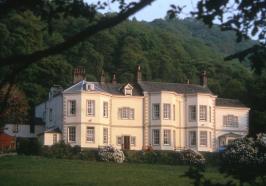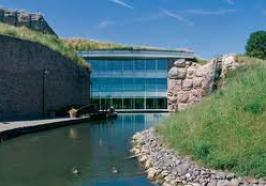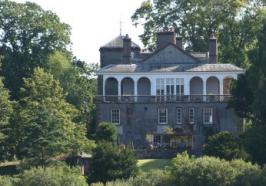Grand Designs
Barrow House is one of three houses around Derwent Water that were designed by the eccentric wealthy gentleman Joseph Pocklington. After his first formative visit to the Lake District in 1768, the Nottinghamshire-born Pocklington used his considerable inheritance to indulge his passion for building. He bought Derwent Island in 1778 and quickly adorned it with a large house and several follies, including a boat house in the style of a non-conformist chapel, and Fort Joseph, from which he fired cannon and staged mock battles. The foundations for Barrow House were started in 1787 and it became known as Barrow Cascade House, referring to the impressive waterfall which Pocklington enhanced with gunpowder. Pocklington took up permanent summer residence in Barrow Cascade House in 1797 after a rough voyage from the island.
Derwent Island is now owned by The National Trust, with tenants living in the modified house, while Barrow House and Finkle Street House (now called Derwent Bank) provide accommodation for visiting individuals, families, and groups. The exterior of Barrow House is very little changed, and even the interior, modified for hostel accommodation, retains original fireplaces and plaster work.
How have the grand designs of the past influenced our landscape, leisure, and livelihoods today? We can visit buildings in the area to explore their materials, style, methods, conservation, and historical uses, from ancient churches to modern eco-friendly houses.
We will compare buildings of different ages and investigate the planning laws that affect conservation and new building, particularly in the context of a National Park.
Groups can create their own grand designs with natural materials in the grounds of Barrow House.
Within Borrowdale we can explore what Grand Designs, including churches, monuments, town buildings, and country houses, mean for the local community and its visitors. How have they affected spirituality, creativity, citizenship, and the environment?
Sample activities
- The poet William Wordsworth thought that Pocklington had ‘defaced’ Derwent Water with his designs and buildings. Discuss and present ideas on the different opinions about Grand Designs.
- In 1908 Barrow House was sold at auction. Write a description of Barrow House for the auction booklet, and then compare it to the one from 1908. Discuss how modern day planning laws would have affected the original building of Barrow House.
- Create role plays to re-enact the experiences of Georgian and Victorian tourists: how would Joseph Pocklington have entertained and impressed his guests? Learn about the regattas, based around the Grand Designs on Derwent Island.
- Use natural materials to make grand designs for birds, animals and people.
- Visit the Rheged Centre, with its grass roof and underground spaces, and learn about how it was built.
-
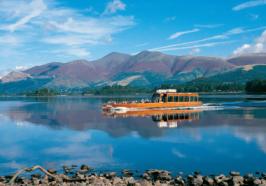 Group trips on the Keswick Launch
Group trips on the Keswick Launch -
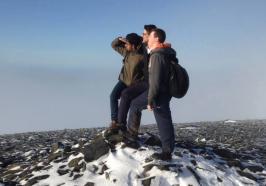 Birmingham University Wilderness Medicine Students
Birmingham University Wilderness Medicine Students -
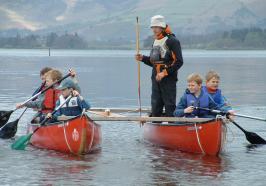 Working together on Derwent Water
Working together on Derwent Water -
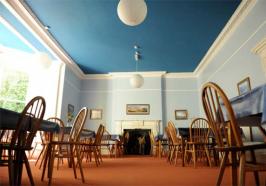 Dining room
Dining room -
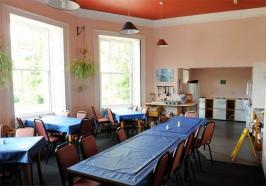 Self catering kitchen
Self catering kitchen -
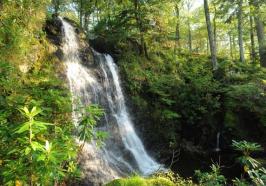 Barrow Cascade: the waterfall in our grounds
Barrow Cascade: the waterfall in our grounds -
-
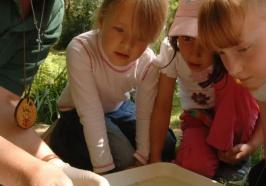 Classrooms in the forest
Classrooms in the forest -
 Pond-dipping
Pond-dipping -
Working together
-
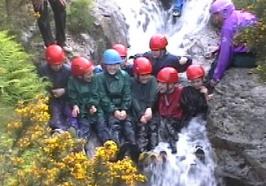 Gorge scrambling
Gorge scrambling -
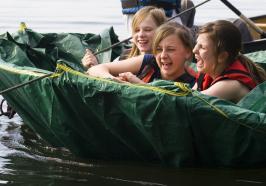 Raft building (and floating!)
Raft building (and floating!) -
.jpg) Be a Viking for a day!
Be a Viking for a day! -
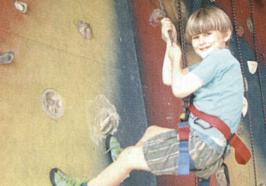 Indoor climbing
Indoor climbing -
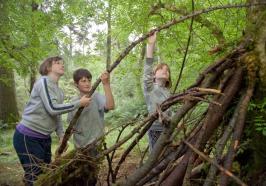 Shelter-building
Shelter-building


